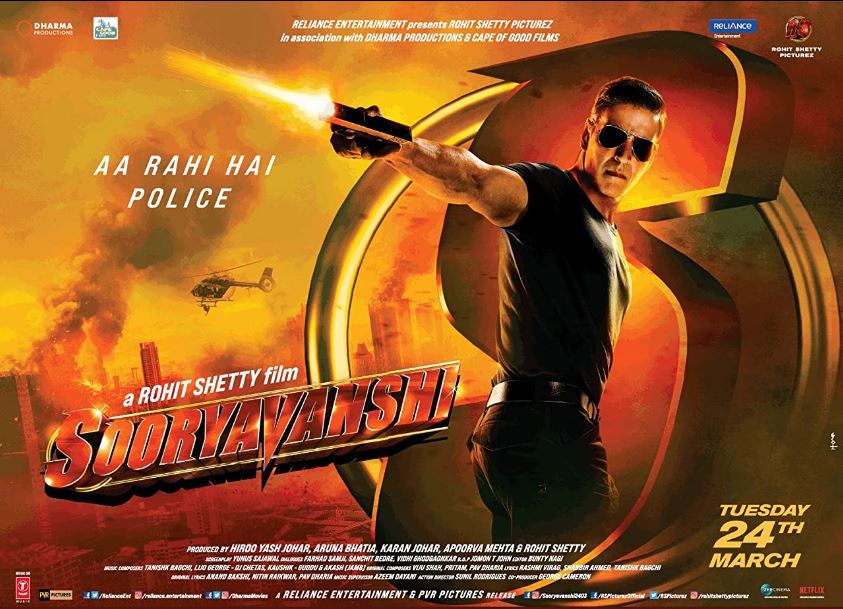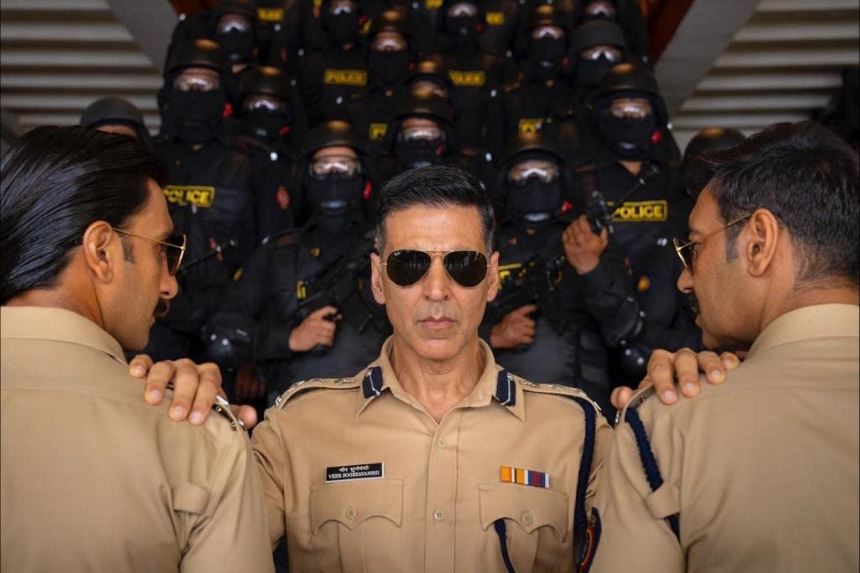Sooryavanshi: A Film With A Pre Covid Era ‘Entertainment Quotient’



Rohit Shetty’s multi starrer film Sooryavanshi has released on Nov 5, 2021, more than a year after its original release date (March 24, 2020). While the film is being credited to bring back the theater experience of movies and its success is being assessed in terms of box office collection, Rachit Raj takes a look at the film & the content of Sooryavanshi like Bollywood’s mainstream films in a post Covid era; where Hindi audiences have had a huge exposure of quality cinema/series from non Hindi regions of the country and outside the country, through OTT platforms. Rachit prefers to be called a film critic by accident, an academician by design, and a storyteller by choice.

Sooryavanshi feels like the real reopening of theaters in India. There was a bustling anticipation today as the opening few minutes of the film went on the big screen. Despite everything that the nation has gone through this year, we have a massive Diwali release, and Rohit Shetty-directed movie from his “cop cinematic universe” is everything that one expects from a commercial film these days – terrible filmmaking that feels like a checklist by the makers to incorporate everything that they feel assures them a good commercial response.
So in the world of Sooryavanshi, we have a titular Veer Sooryavanshi (Akshay Kumnar) who almost never bleeds in the movie despite multiple action sequences. He is unflinching, no matter how terrifying the stakes are. He romances his girlfriend/wife Ria (Katrina Kaif) in two forced romantic songs, and teams up with two other fiery protagonists of previous Shetty films to fight the bad guys (all Muslims, and yet this is as secular a movie as you can get starring Kumar).
Beyond this, everything in Sooryavanshi is an afterthought. So, for no reason we get a voice-over by Ajay Devgn (Singham from Singham), informing us about the repeated terror attacks on Mumbai. This leads to a slow-mo introduction of Sooryavanshi that makes your ears ache. Sooryavanshi or Soorya as his wife calls him is a no-nonsense, passionate ATS Chief who deals with the biggest terrorists on the radar.

There is little interesting to the character, and the only so-called comic trait the narrative gives him is outright regressive and dated. This is sad because like Ranveer Singh, watching Akshay Kumar in a Rohit Shetty world sounds like an exciting enough idea. At his best, Kumar can make you laugh in an instant, and yet the film gives him a character that is as dull as his other recent characters, robing us from an experience that was more naturally humorous than forced, frustrating comedy.
Shetty raises the stakes here. If it was corruption in Singham and rape in Simmba, it is serial bombs in Mumbai this time. This makes for an odd viewing, because as a viewer it is easy to understand that Shetty is beyond his depths here. The story feels like one that a Neeraj Pandey in top-form would do well with, not Rohit Shetty.

The nose-dive is so steep, and the movie’s desperation to be entertaining (and equating big-budget cinema with awfully loud background score) so self-sabotaging that even cameos by Ranveer Singh and Ajay Devgn do little to help. Sooryavanshi, though, makes the cardinal sin of wanting to be more than a brainless affair. A forced homage to India’s secularity in a reiteration of “Hum Hindustani” is so awful and insipid that it makes you cringe to the core. Especially because this comes after the film – directed by and starring upper-caste Hindu men – tries to be a wheel of moral-lecturing certain characters and more necessarily its audience. The politically fractured messaging is so exasperating that it makes you want to barf.
Sooryavanshi is a reminder of the kind of cinema we were accepting as the norm in the name of mass entertainment in the pre-Covid world. The absence of imagination, and a questionable commitment to redundancy in Sooryavanshi is as insulting as the film’s need to spoon-feed information to its viewers. Now as the first major Hindi film release in a long, long time, the film is at best a cautionary tale about the kind of movies we need to put behind us, as we try to rebuild the theatre-going culture in our country.




